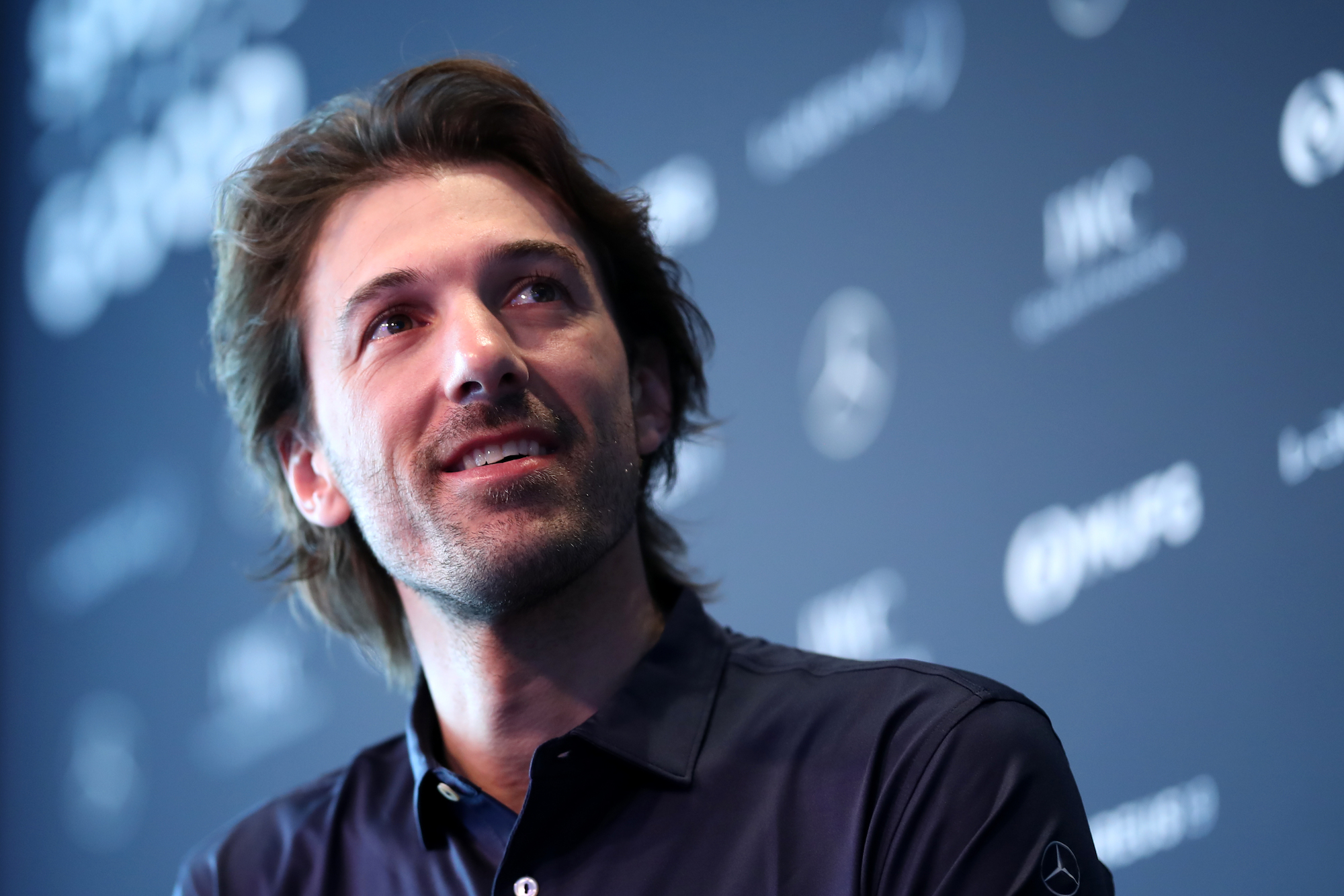Fabian Cancellara says criticism of Ineos cycling sponsorship ‘not fair’
The chemical firm has come under fire after stepping in to take over Team Sky


Fabian Cancellara says the criticism aimed at Ineos for its cycling sponsorship is ‘not fair.’
The British chemical company stepped in to take over Team Sky, causing protest from environmental campaigners.
Classics legend Cancellara, who retired in 2016, said he believes the team’s survival is good for the sport and that the new sponsor should be welcomed.
The Olympic gold medallist told Cycling Weekly: “When people hear Ineos, they think ‘they don’t do good things and they behave badly, they don’t have a good reputation.’ It’s not fair.
“If someone has the passion, let them do that and live in freedom and not just protest.
“The people who are protesting should look at their own garbage, how they use their electricity and water, their recycling.
“Before you criticise, clean your own dirt at your front door.”
Get The Leadout Newsletter
The latest race content, interviews, features, reviews and expert buying guides, direct to your inbox!
>>> Connor Swift joins André Greipel’s team Arkéa-Samsic
The announcement that Team Sky would continue under a new sponsorship came earlier this year, as Britain’s richest man Sir Jim Ratcliffe and his firm Ineos stepped in.
Team Ineos officially launched the day before the Tour de Yorkshire, with protestors making their presence felt outside the squad’s bus.
While many welcomed the news that Britain’s only WorldTour team would survive, some raised concerns about the new backer.
Ineos is one of the largest manufacturers of chemicals and oil products in the world, including the production of solvents, biofuels, plastics, synthetic oils and insulation materials.
Small plastic pellets used by plastic producers like Ineos can end up in the sea, harming wildlife and polluting the water.
The firm has committed to ensuring that these pellets do not end up in the marine environment through its Zero Pellet Loss Programme, changing the way the products are handled.
Another environmental concern centred around Ineos is the practice of fracking – drilling into the earth and blasting liquid at the rock to release natural gas inside.
Ineos has permission to explore for shale gas in parts of the north of England and the East Midlands.
Fracking is a controversial process because of the environmental impacts of transporting huge amounts of water and the risk of earth tremors.
Cancellara said: “For the sport it helps if you have one big team or sponsor that helps a current team continue.
“There were people that would have been happy if Team Sky couldn’t find a sponsor, because they would think ‘now we’re better than them.’”
During the Team Ineos launch in Yorkshire earlier this month, four-time Tour de France winner Chris Froome said the team would continue their commitment to reducing single-use plastic consumption.
Founder and chairman of Ineos Ratcliffe, also responded to criticism aimed at the company.
He said: “We are going to improve technologies and recycling, a lot of science going to help solve that problem.”
Ratcliffe said. “But you look at cycling, [bikes] are essential for modern life. You go to a hospital, it’s all plastic, your car is half plastic, your food is wrapped in plastic. Plastic does have value in our modern life whether you like it or not, and we don’t chuck it in the sea. We do what we can to help, but we can’t solve the whole problem.”
Ratcliffe added: “Team Ineos is a completely different thing to the fracking issue”
“If I look at the UK, we are sat on some potentially extraordinary reserves. Gasses are great fuel, it’s a clean fuel compared to coal or importing gas. It creates jobs and investments. Why wouldn’t you look at exploring that in the UK? I think it’s outrageous that the government listens to a noisy minuscule minority instead of looking at the science, which is what they should do.”

Thank you for reading 20 articles this month* Join now for unlimited access
Enjoy your first month for just £1 / $1 / €1
*Read 5 free articles per month without a subscription

Join now for unlimited access
Try first month for just £1 / $1 / €1
Alex Ballinger is editor of BikeBiz magazine, the leading publication for the UK cycle industry, and is the former digital news editor for CyclingWeekly.com. After gaining experience in local newsrooms, national newspapers and in digital journalism, Alex found his calling in cycling, first as a reporter, then as news editor responsible for Cycling Weekly's online news output, and now as the editor of BikeBiz. Since pro cycling first captured his heart during the 2010 Tour de France (specifically the Contador-Schleck battle) Alex covered three Tours de France, multiple editions of the Tour of Britain, and the World Championships, while both writing and video presenting for Cycling Weekly. He also specialises in fitness writing, often throwing himself into the deep end to help readers improve their own power numbers. Away from the desk, Alex can be found racing time trials, riding BMX and mountain bikes, or exploring off-road on his gravel bike. He’s also an avid gamer, and can usually be found buried in an eclectic selection of books.
-
 'It took everything' - Puck Pieterse outclimbs Demi Vollering to win La Flèche Wallonne
'It took everything' - Puck Pieterse outclimbs Demi Vollering to win La Flèche WallonneDutch 22-year-old shows Classics pedigree with first one-day victory
By Tom Davidson
-
 Tadej Pogačar flies to dominant victory at La Flèche Wallonne
Tadej Pogačar flies to dominant victory at La Flèche WallonneSlovenian takes second win at Belgian classic ahead of Kévin Vauquelin and Tom Pidcock
By Tom Thewlis